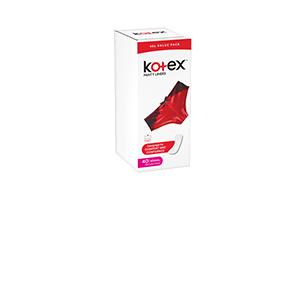
What is menopause?
So, you’re about to go through “The Change” when your periods will come to an end. It should be a time of celebration but, unfortunately, for many women, it’s not! For most women, it’s filled with mixed emotions, so it’s better to be prepared and informed. Make this life-changing journey a little easier to navigate by preparing yourself for what’s coming…
WHEN DOES MENOPAUSE HAPPEN?
Menopause happens around age 45–55. Ovulation stops, hormone levels shift, your body changes, moods adjust and your role as a woman and mother changes – but it does not end!
While some women are happy to say goodbye to periods and worrying about getting pregnant, others mourn the loss of fertility and perceived youth. Menopausal women can still be glamorous and sexy though!
PHYSICAL CHANGES DURING MENOPAUSE
It’s not called “The Change” for nothing! During pre-menopause, your body gradually stops ripening and releasing eggs, which means that periods naturally become irregular. This can take about two years – but it can also happen quite suddenly. Finally, menopause is the last period and pregnancy is no longer possible.
SYMPTOMS OF MENOPAUSE
During your pre-menopausal years, changing hormone levels can cause:
- Erratic or irregular periods that may be lighter or much heavier than normal
- Hot flushes
- Mood swings
- Vaginal tenderness and dryness
These symptoms should not be confused with symptoms of medical conditions that may start when menopause does!
Menopause can occur earlier in some women and is caused by:
- Hereditary or health conditions (e.g. having to take long-term medications)
- Exposure to radiation or chemotherapeutic agents for cancer treatment
- Surgical removal of the ovaries
- Any other surgery that compromises blood flow to the ovaries
DEALING WITH PRE-MENOPAUSE & MENOPAUSE
Here are a few things you can do to make getting through this phase of your life a little easier.
- Be prepared for period changes: shorter, longer, heavier or lighter than it was in the past
- Have a few pads or tampons on hand at all times
- Keep a record of your periods
- Drink ice water when you feel a hot-flush coming on
- Don’t sweat the small stuff!
- Depression is not synonymous with menopause – it could be symptomatic of another problem
- See your doctor for advice or if you’re not coping – Hormonal Replacement Therapy (HRT) is no longer the first line of treatment for menopause
- Natural progesterone creams can help to relieve symptoms
HOW TO DEAL WITH THE SYMPTOMS
Making a few tweaks to your daily routine may help ease your symptoms:
- Good nutrition can reduce the risk of heart disease, which increases with declining oestrogen levels. A healthy, protein-enriched diet and a plate of colourful vegetables followed by fresh fruit at every meal are more important than ever.
- Regular exercise helps keep your weight down, controls fat cells, improves your sleep, strengthens your bones and elevates your mood. Aim for 30 minutes daily.
- Stress reduction techniques such as meditation, yoga or taking up a new hobby can help you relax and tolerate those frustrating symptoms.
- Sleep in a cool room or try using a fan. Dress in layers so when a hot flush hits, you’ll be able to remove a jacket for an instant cool-down. When in company, order iced tea or another cold refreshment rather than a hot beverage.
Once you’re over menopause, the frequency of symptoms should diminish, and they usually disappear within a few years. It’s onwards and upwards from then on.


 Kenya
Kenya Nigeria
Nigeria 



